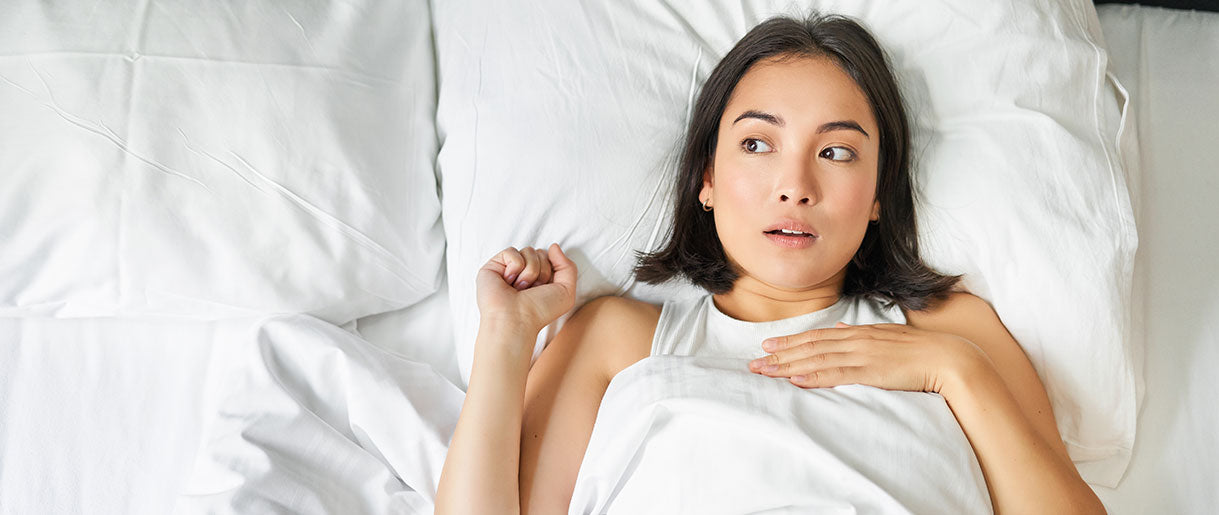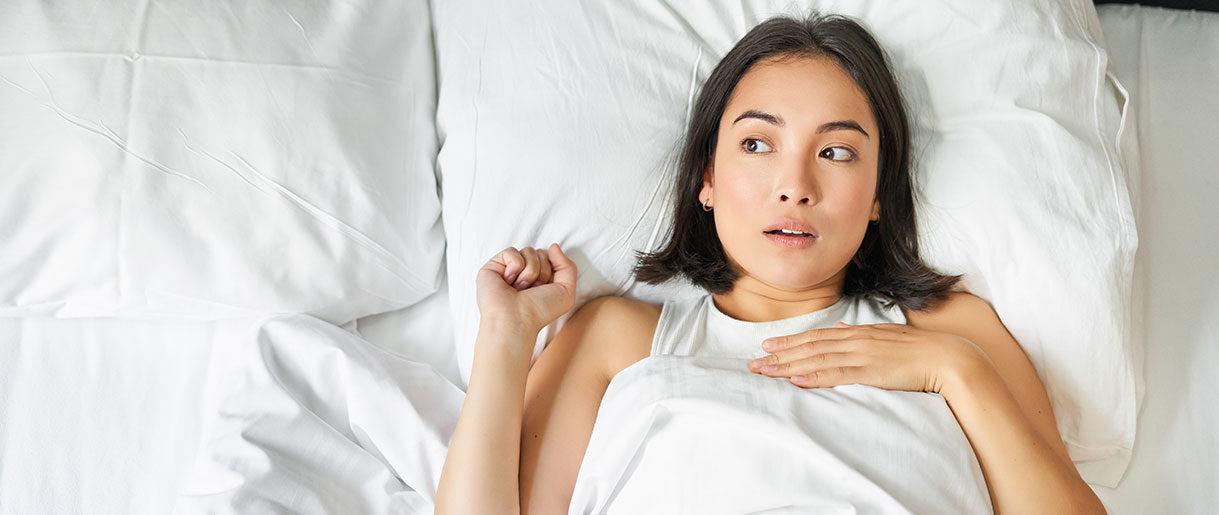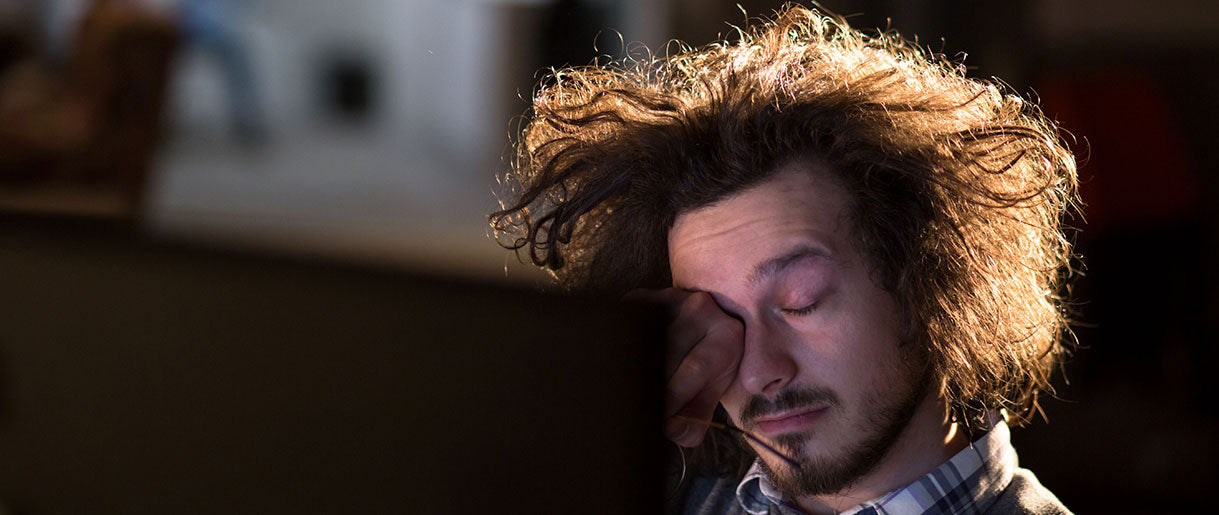Waking up feeling refreshed and full of energy is easier than you might think—the secret lies in a combination of good sleep hygiene, balanced nutrition, and mindful evening habits.
Firstly, establishing a consistent sleep schedule helps regulate your body's internal clock, leading to better sleep quality. Secondly, paying attention to what and when you eat before bed can significantly impact your energy levels in the morning; a light, nutritious meal is ideal.
Additionally, incorporating relaxation techniques like meditation or reading before sleep can significantly improve the quality of your rest. Lastly, ensuring your sleeping environment is comfortable, dark, and quiet can make a substantial difference.
This article delves into these strategies in detail, offering practical tips to help you say goodbye to morning fatigue and hello to vibrant, energized starts to your day.
1. Consistent Sleep Schedule
Tossing and turning at night, struggling to fall asleep, or waking up feeling like you haven't rested at all? These common issues may stem from an irregular sleep-wake cycle (1).
Establishing a consistent sleep schedule is more than just a routine; it's a commitment to your overall well-being. It aligns your body's internal clock, allowing you to enjoy restorative sleep, combat sleep disorders like sleep apnea, and wake up refreshed every morning.
- Regulate Your Sleep-Wake Cycle: Sticking to the same bedtime and wake-up time helps synchronize your body's circadian rhythms (2), making it easier to fall asleep and wake up naturally, reducing the grogginess associated with something called sleep inertia.
- Improve Sleep Quality: Consistency in sleeping patterns promotes deeper, more restful sleep. This means more time spent in deep sleep, essential for physical and mental rejuvenation (3).
- Prevent Sleep Disorders: Regular sleep habits can help prevent and manage sleep disorders. Following a set schedule reduces the risk of developing conditions like sleep apnea, ensuring a more restful night's sleep.
Incorporating a consistent sleep schedule into your life isn't just about avoiding the dread of waking up tired. It's about embracing a lifestyle that fosters enough sleep, deep sleep, and restorative sleep.
2. Quality Sleep Environment

Have you ever wondered why you still feel tired after sleeping seven to nine hours? The answer could lie in your sleep environment.
A poor sleep environment is a recipe for poor sleep hygiene, leading to morning grogginess and a day full of fatigue—a poor sleep environment can keep you in the cycle of wondering how to wake when tired.
But fear not, creating a sleep sanctuary that aligns with your circadian rhythm and combats morning fatigue is simpler than you think. Here are some tips to help you wake up with energy.
- Comfort is King: Invest in a comfortable mattress and pillows. The right bedding can transform your sleep quality, ensuring you wake up rejuvenated instead of tired.
- Cool and Calm Atmosphere: Maintain a cool room temperature. A cooler environment aids in falling asleep quicker and staying asleep, allowing for a deeper sleep cycle.
- Dim the Lights: Minimize exposure to bright light in your bedroom. Reducing light levels signals your brain that it's time to rest, enhancing your natural sleep patterns.
Turning your bedroom into a haven for a good night's sleep is more than just a luxury; it's a necessity. Creating a tranquil and comfortable sleeping environment takes a significant step toward fighting morning fatigue.
3. Mindful Eating Habits
Have you ever noticed how feeling tired in the morning correlates with your diet the night before? Eating habits play a crucial role in how we sleep and, consequently, how we wake up.
Gorging on a heavy meal just before bed or indulging in caffeine and alcohol can lead to disrupted sleep patterns, contributing to sleep inertia and a serious sleep disorder. Here's how mindful eating can help you wake up with energy:
- Light and Early Dinners: Avoid heavy or large meals within a few hours of bedtime (4). A lighter meal aids digestion and helps prevent sleep disturbances, ensuring a full night's sleep.
- Caffeine and Alcohol in Check: Limit the intake of caffeine (5) and alcohol (6) in the evening. These stimulants can interfere with your ability to fall asleep and impact the quality of your sleep, exacerbating feelings of sleep deprivation. If you need something to drink before bed, consider taking teas that improve sleep.
- Balanced Nutritional Choices: Opt for foods that promote sleep. Foods rich in magnesium, calcium, and tryptophan (7) can improve sleep quality and help combat waking up tired.
Mindful eating is not just about what you eat but also when and how you eat. By aligning your eating habits with your sleep needs, you can significantly reduce the likelihood of sleep inertia, which affects both motor and cognitive skills upon waking.
4. Stay Hydrated

Struggling with a groggy feeling each morning, even after what seems like average sleep? Hydration could be your missing piece in the puzzle of good quality sleep.
While dehydration is a common culprit behind fatigue, balancing your fluid intake can significantly boost your morning alertness and help you fight morning fatigue.
- Consistent Hydration Throughout the Day: Sip water regularly to maintain optimal hydration (8). This ensures your body functions properly and can help you fall asleep faster.
- Limit Evening Fluid Intake: To avoid disrupting your sleep with frequent bathroom trips, reduce your liquid intake before bedtime.
- Balance is Key: While staying hydrated is crucial, drinking too much water before bed can interrupt sleep (think: multiple trips to the bathroom). Find a balance that keeps you hydrated but doesn't interfere with your sleep.
Being mindful about hydration is a simple yet effective strategy to combat the feeling of waking up tired. However, it's not just about drinking water; it's about when and how much you drink.
5. Regular Exercise
If your morning routine leaves you feeling more 'sleep drunkenness,' it might be time to look at how regular exercise fits into your life.
While lifestyle factors like diet and sleep habits play a significant role, regular exercise can profoundly impact your sleep quality and help you overcome morning tiredness.
- Timing is Crucial: Engage in regular physical activity, but avoid vigorous workouts close to bedtime. Afternoon or morning exercises for energy can enhance your sleep quality without causing trouble sleeping at night (9).
- Exercise for Energy: Regular exercise, especially in the morning, can energize your day without caffeine and reduce daytime tiredness. It sets a positive tone for the day and improves overall health.
- Find the Right Balance: Not all exercises need to be high-intensity. Even moderate activities like walking or yoga can significantly improve sleep quality and help you wake up less tired.
Regular exercise is a powerful tool in combating morning tiredness. It's not just about tiring your body out to fall asleep; it's about creating a healthier, more balanced lifestyle that naturally improves your sleep.
6. Limit Screen Time Before Bed

Are you a night owl who spends the late hours scrolling through your phone, only to wake up tired the next morning? It's time to talk about blue light and its impact on sleep (10).
The light emitted by screens can significantly disrupt your body's circadian rhythm, making it harder to fall asleep and contributing to feelings of sleep inertia in the morning.
- Understand Blue Light Impact: Blue light from screens mimics daylight, confusing your circadian rhythm (11) and making your brain think it's still early evening.
- Create a Screen-free Bedtime Routine: Dedicate the hour before bed to relaxing activities without screens. This can help signal to your body that it's time to wind down, facilitating a smoother transition to sleep.
- Address Potential Sleep Disorders: Excessive screen time before bed can exacerbate issues like restless legs syndrome or other underlying medical conditions, affecting sleep quality.
Transforming into a morning person starts the night before. Limiting your exposure to screens in the hours leading up to bedtime allows your body to prepare for sleep, naturally fostering a more restful night.
7. Stress Management
Waking up tired, especially in the early morning, can often indicate stress interfering with sleep. While factors like drinking alcohol or caffeinated drinks before bed are known to affect sleep, stress management is equally critical in aligning your body clock and ensuring you stop waking up tired.
- Embrace Relaxation Techniques: Incorporate practices like deep breathing,flow state meditation, or gentle yoga into your nightly routine. These activities help calm the mind and prepare your body for sleep.
- Ditch the Stimulants: Avoid alcohol and caffeine close to bedtime. While they seem like quick stress relievers, they can disrupt your sleep cycle and contribute to underlying health conditions.
- Seek Professional Help if Needed: Persistent stress affecting sleep quality might require medical treatment. Don't hesitate to consult a healthcare professional to manage stress effectively.
By managing stress, you're improving not just your sleep but also your overall health and well-being. A calm and relaxed mind at bedtime sets the stage for a good night's sleep, reducing the likelihood of waking up tired. It is one of the keys to waking up early, ready to fake the day.
8. Power Down the Mind

Ever find yourself lying in bed, mind racing, unable to drift off to sleep? The solution could be as simple as engaging in a calming activity before bed.
Activities like reading a book or listening to soothing music are more than just relaxation techniques; they are signals to your brain that it's time to shift gears from the hustle and bustle of the day to the tranquility of the night.
- Embrace Quiet Activities: Choose activities like reading, listening to calm music, or doing light stretching. These actions help to relax your mind and body, setting the stage for a restful night.
- Create a Pre-sleep Ritual: Establishing a calming activity routine can cue your body and mind that it's time to sleep, aiding in quicker and deeper sleep onset.
- Reduce Mental Stimulation: Avoid activities that are mentally stimulating before bedtime, such as intense TV shows or work-related tasks, as they can make it harder for your mind to settle down.
Creating a nightly routine to power down your mind is a simple yet effective way to improve your sleep quality. Not only does it help in falling asleep more quickly, but it also ensures that your sleep is more peaceful and rejuvenating.
9. Nutritious Diet
Ever hit the snooze button on your alarm clock because you feel groggy and unready to face the day? It's time to look at your plate—what you eat significantly affects how you sleep and wake up.
A diet rich in fruits, vegetables, lean proteins, and whole grains isn't just good for your body; it's essential for quality sleep, helping you combat sleep inertia and wake up refreshed.
However, remember that it is not always about what you eat at night—the foods in your morning routine for energy are also important. Therefore, consider incorporating foods that wake you up in your breakfast.
- Avoid Spicy and Heavy Foods: Eating spicy or heavy meals close to bedtime can disrupt sleep. Opt for meals that are easier to digest to improve sleep quality.
- Incorporate Complex Carbohydrates and Lower-Sugar Fruits: These provide sustained energy and don't spike your blood sugar levels, promoting a more restful night.
- Breakfast Rich in Nutrients: Start your day with a nutritious breakfast. It kickstarts your metabolism and provides energy in the morning to begin the day without feeling sluggish.
Adapting your diet to include sleep-supporting foods can improve sleep quality and morning energy levels. Remember, a nutritious diet does more than address an underlying medical condition; it sets the foundation for a lifestyle that values restful sleep and energetic mornings.
10. Seek Medical Advice

Waking up day after day feeling exhausted isn't just frustrating; it might be a sign of something more serious. If you've tried adjusting your sleep habits, diet, and stress levels but still face chronic tiredness, it's time to consider seeking medical advice.
Persistent fatigue can be a symptom of an underlying sleep disorder or other medical conditions, and professional guidance is crucial in addressing these issues effectively.
- Identifying Causes: A healthcare professional can help diagnose any underlying sleep disorders or medical conditions contributing to your constant tiredness.
- Tailored Treatment Options: Everyone is unique, and so are the solutions to their sleep issues. A medical expert can provide personalized advice and treatment plans.
- Professional Insight and Support: Healthcare professionals offer support and guidance beyond treatment, helping you understand and manage your condition more effectively.
Don't let chronic tiredness control your life. By consulting a healthcare professional, you're taking a significant step towards uncovering the root cause of your sleep issues and finding a path to better rest and brighter mornings.
FAQs About How To Not Be Tired In The Morning
What Lifestyle Changes Can I Make To Stop Waking Up Tired?
To stop waking up tired, focus on establishing a consistent sleep schedule and creating a sleep-conducive environment. Going to bed and waking up at the same time daily helps regulate your body's internal clock, leading to improved sleep quality.
Additionally, ensure your bedroom is quiet, dark, and cool, and invest in a comfortable mattress and pillows. It's also important to be mindful of your diet and physical activity. Avoid heavy meals, caffeine, and alcohol close to bedtime, and incorporate regular exercise into your routine, ideally several hours before sleep.
How Does Diet Affect My Sleep Quality And Energy Levels In The Morning?
Your diet plays a crucial role in determining the quality of your sleep and how refreshed you feel in the morning. Eating heavy or spicy foods before bed can disrupt sleep, causing discomfort and restlessness.
To promote better sleep, choose a balanced diet rich in fruits, vegetables, lean proteins, and whole grains. These foods contain nutrients that aid in sleep regulation. Additionally, limit caffeine and alcohol intake in the evenings, as they can interfere with your sleep cycle, leading to morning fatigue.
When Should I Seek Medical Advice For My Morning Tiredness?
If your morning tiredness persists despite lifestyle and dietary changes, seeking medical advice is advisable. Chronic tiredness can be a symptom of underlying issues such as sleep disorders or other health conditions.
A healthcare professional can conduct necessary evaluations to diagnose any underlying causes. Early detection and treatment of sleep disorders or health issues can significantly improve sleep quality and energy levels.
Key Takeaways
As we wrap up this comprehensive guide on banishing morning tiredness, remember that the key to vibrant mornings lies in our small, daily choices.
From fine-tuning your sleep environment to being mindful of your diet and stress levels, each step is a stride towards waking up with more energy and less fatigue. Implement these strategies and watch as your mornings and life transform.
But the journey doesn't end here. Your experiences, successes, and challenges in overcoming morning tiredness are invaluable. So, we encourage you to share your story in the comments below.
Have you tried any of these tips? What worked for you, and what didn't? Do you have other strategies that have helped you wake up feeling refreshed? Your insights could be the key that unlocks someone else's morning vitality.
References
- Effects of an irregular bedtime schedule on sleep quality, daytime sleepiness, and fatigue among university students in Taiwan, (1), https://bmcpublichealth.biomedcentral.com/articles/10.1186/1471-2458-9-248
- The impact of structured sleep schedules prior to an in-laboratory study: Individual differences in sleep and circadian timing, (2), https://www.ncbi.nlm.nih.gov/pmc/articles/PMC7423117/
- Sleep timing, sleep consistency, and health in adults: a systematic review, (3), https://pubmed.ncbi.nlm.nih.gov/33054339/
- Does the Proximity of Meals to Bedtime Influence the Sleep of Young Adults? A Cross-Sectional Survey of University Students, (4), https://www.ncbi.nlm.nih.gov/pmc/articles/PMC7215804/
- The effect of caffeine on subsequent sleep: A systematic review and meta-analysis, (5), https://pubmed.ncbi.nlm.nih.gov/36870101/
- The Effects of Alcohol on Quality of Sleep, (6), https://www.ncbi.nlm.nih.gov/pmc/articles/PMC4666864/
- The effect of nutrition and physical activity on sleep quality among adults: a scoping review, (7), https://sleep.biomedcentral.com/articles/10.1186/s41606-023-00090-4
- Short sleep duration is associated with inadequate hydration: cross-cultural evidence from US and Chinese adults, (8), https://pubmed.ncbi.nlm.nih.gov/30395316/
- Interrelationship between Sleep and Exercise: A Systematic Review, (9), https://www.ncbi.nlm.nih.gov/pmc/articles/PMC5385214/
- The influence of blue light on sleep, performance and wellbeing in young adults: A systematic review, (10), https://www.ncbi.nlm.nih.gov/pmc/articles/PMC9424753/
- A review of the current state of research on artificial blue light safety as it applies to digital devices, (11), https://www.sciencedirect.com/science/article/pii/S2405844022015705









Let Us Know Your Comments